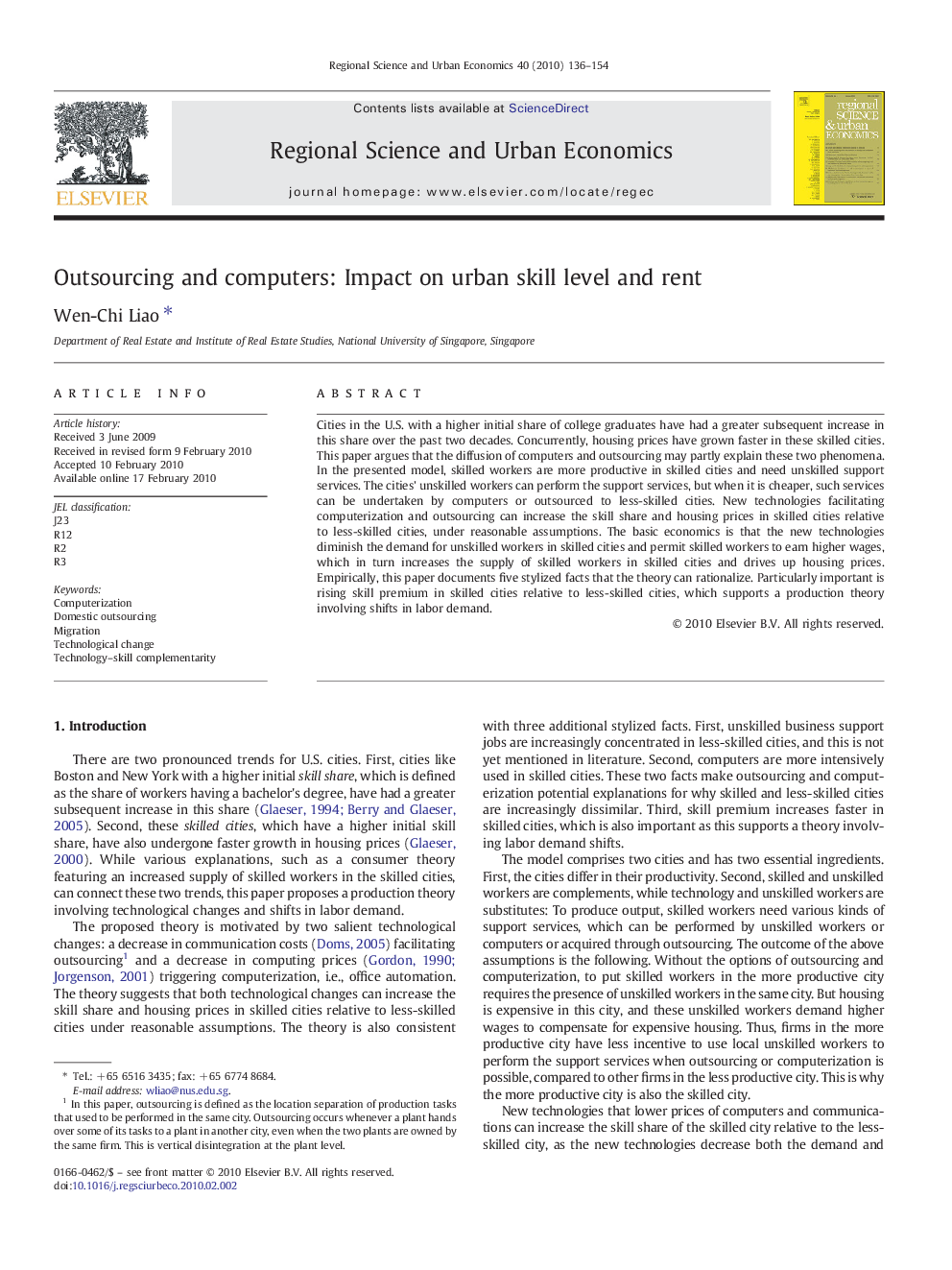| Article ID | Journal | Published Year | Pages | File Type |
|---|---|---|---|---|
| 984077 | Regional Science and Urban Economics | 2010 | 19 Pages |
Cities in the U.S. with a higher initial share of college graduates have had a greater subsequent increase in this share over the past two decades. Concurrently, housing prices have grown faster in these skilled cities. This paper argues that the diffusion of computers and outsourcing may partly explain these two phenomena. In the presented model, skilled workers are more productive in skilled cities and need unskilled support services. The cities' unskilled workers can perform the support services, but when it is cheaper, such services can be undertaken by computers or outsourced to less-skilled cities. New technologies facilitating computerization and outsourcing can increase the skill share and housing prices in skilled cities relative to less-skilled cities, under reasonable assumptions. The basic economics is that the new technologies diminish the demand for unskilled workers in skilled cities and permit skilled workers to earn higher wages, which in turn increases the supply of skilled workers in skilled cities and drives up housing prices. Empirically, this paper documents five stylized facts that the theory can rationalize. Particularly important is rising skill premium in skilled cities relative to less-skilled cities, which supports a production theory involving shifts in labor demand.
